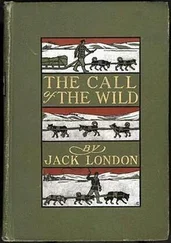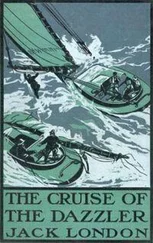Jack London - The Faith of Men
Здесь есть возможность читать онлайн «Jack London - The Faith of Men» весь текст электронной книги совершенно бесплатно (целиком полную версию без сокращений). В некоторых случаях можно слушать аудио, скачать через торрент в формате fb2 и присутствует краткое содержание. Жанр: Классическая проза, на английском языке. Описание произведения, (предисловие) а так же отзывы посетителей доступны на портале библиотеки ЛибКат.
- Название:The Faith of Men
- Автор:
- Жанр:
- Год:неизвестен
- ISBN:нет данных
- Рейтинг книги:3 / 5. Голосов: 1
-
Избранное:Добавить в избранное
- Отзывы:
-
Ваша оценка:
- 60
- 1
- 2
- 3
- 4
- 5
The Faith of Men: краткое содержание, описание и аннотация
Предлагаем к чтению аннотацию, описание, краткое содержание или предисловие (зависит от того, что написал сам автор книги «The Faith of Men»). Если вы не нашли необходимую информацию о книге — напишите в комментариях, мы постараемся отыскать её.
The Faith of Men — читать онлайн бесплатно полную книгу (весь текст) целиком
Ниже представлен текст книги, разбитый по страницам. Система сохранения места последней прочитанной страницы, позволяет с удобством читать онлайн бесплатно книгу «The Faith of Men», без необходимости каждый раз заново искать на чём Вы остановились. Поставьте закладку, и сможете в любой момент перейти на страницу, на которой закончили чтение.
Интервал:
Закладка:
“Listen, Jees Uck!” he said very slowly, as though aware of the necessity for haste and yet afraid to hasten. “Do what I say. Stay by my side, but do not touch me. I must be very quiet, but you must not go away.” His jaw began to set and his face to quiver and distort with the fore-running pangs, but he gulped and struggled to master them. “Do not got away. And do not let Amos go away. Understand! Amos must stay right here.”
She nodded her head, and he passed off into the first of many convulsions, which gradually diminished in force and frequency. Jees Uck hung over him remembering his injunction and not daring to touch him. Once Amos grew restless and made as though to go into the kitchen; but a quick blaze from her eyes quelled him, and after that, save for his laboured breathing and charnel cough, he was very quiet.
Bonner slept. The blink of light that marked the day disappeared. Amos, followed about by the woman’s eyes, lighted the kerosene lamps. Evening came on. Through the north window the heavens were emblazoned with an auroral display, which flamed and flared and died down into blackness. Some time after that, Neil Bonner roused. First he looked to see that Amos was still there, then smiled at Jees Uck and pulled himself up. Every muscle was stiff and sore, and he smiled ruefully, pressing and prodding himself as if to ascertain the extent of the ravage. Then his face went stern and businesslike.
“Jees Uck,” he said, “take a candle. Go into the kitchen. There is food on the table-biscuits and beans and bacon; also, coffee in the pot on the stove. Bring it here on the counter. Also, bring tumblers and water and whisky, which you will find on the top shelf of the locker. Do not forget the whisky.”
Having swallowed a stiff glass of the whisky, he went carefully through the medicine chest, now and again putting aside, with definite purpose, certain bottles and vials. Then he set to work on the food, attempting a crude analysis. He had not been unused to the laboratory in his college days and was possessed of sufficient imagination to achieve results with his limited materials. The condition of tetanus, which had marked his paroxysms, simplified matters, and he made but one test. The coffee yielded nothing; nor did the beans. To the biscuits he devoted the utmost care. Amos, who knew nothing of chemistry, looked on with steady curiosity. But Jees Uck, who had boundless faith in the white man’s wisdom, and especially in Neil Bonner’s wisdom, and who not only knew nothing but knew that she knew nothing watched his face rather than his hands.
Step by step he eliminated possibilities, until he came to the final test. He was using a thin medicine vial for a tube, and this he held between him and the light, watching the slow precipitation of a salt through the solution contained in the tube. He said nothing, but he saw what he had expected to see. And Jees Uck, her eyes riveted on his face, saw something too,-something that made her spring like a tigress upon Amos, and with splendid suppleness and strength bend his body back across her knee. Her knife was out of its sheaf and uplifted, glinting in the lamplight. Amos was snarling; but Bonner intervened ere the blade could fall.
“That’s a good girl, Jees Uck. But never mind. Let him go!”
She dropped the man obediently, though with protest writ large on her face; and his body thudded to the floor. Bonner nudged him with his moccasined foot.
“Get up, Amos!” he commanded. “You’ve got to pack an outfit yet to-night and hit the trail.”
“You don’t mean to say-” Amos blurted savagely.
“I mean to say that you tried to kill me,” Neil went on in cold, even tones. “I mean to say that you killed Birdsall, for all the Company believes he killed himself. You used strychnine in my case. God knows with what you fixed him. Now I can’t hang you. You’re too near dead as it is. But Twenty Mile is too small for the pair of us, and you’ve got to mush. It’s two hundred miles to Holy Cross. You can make it if you’re careful not to over-exert. I’ll give you grub, a sled, and three dogs. You’ll be as safe as if you were in jail, for you can’t get out of the country. And I’ll give you one chance. You’re almost dead. Very well. I shall send no word to the Company until the spring. In the meantime, the thing for you to do is to die. Now mush !”
“You go to bed!” Jees Uck insisted, when Amos had churned away into the night towards Holy Cross. “You sick man yet, Neil.”
“And you’re a good girl, Jees Uck,” he answered. “And here’s my hand on it. But you must go home.”
“You don’t like me,” she said simply.
He smiled, helped her on with her parka , and led her to the door. “Only too well, Jees Uck,” he said softly; “only too well.”
After that the pall of the Arctic night fell deeper and blacker on the land. Neil Bonner discovered that he had failed to put proper valuation upon even the sullen face of the murderous and death-stricken Amos. It became very lonely at Twenty Mile. “For the love of God, Prentiss, send me a man,” he wrote to the agent at Fort Hamilton, three hundred miles up river. Six weeks later the Indian messenger brought back a reply. It was characteristic: “Hell. Both feet frozen. Need him myself-Prentiss.”
To make matters worse, most of the Toyaats were in the back country on the flanks of a caribou herd, and Jees Uck was with them. Removing to a distance seemed to bring her closer than ever, and Neil Bonner found himself picturing her, day by day, in camp and on trail. It is not good to be alone. Often he went out of the quiet store, bare-headed and frantic, and shook his fist at the blink of day that came over the southern sky-line. And on still, cold nights he left his bed and stumbled into the frost, where he assaulted the silence at the top of his lungs, as though it were some tangible, sentiment thing that he might arouse; or he shouted at the sleeping dogs till they howled and howled again. One shaggy brute he brought into the post, playing that it was the new man sent by Prentiss. He strove to make it sleep decently under blankets at nights and to sit at table and eat as a man should; but the beast, mere domesticated wolf that it was, rebelled, and sought out dark corners and snarled and bit him in the leg, and was finally beaten and driven forth.
Then the trick of personification seized upon Neil Bonner and mastered him. All the forces of his environment metamorphosed into living, breathing entities and came to live with him. He recreated the primitive pantheon; reared an altar to the sun and burned candle fat and bacon grease thereon; and in the unfenced yard, by the long-legged cache, made a frost devil, which he was wont to make faces at and mock when the mercury oozed down into the bulb. All this in play, of course. He said it to himself that it was in play, and repeated it over and over to make sure, unaware that madness is ever prone to express itself in make-believe and play.
One midwinter day, Father Champreau, a Jesuit missionary, pulled into Twenty Mile. Bonner fell upon him and dragged him into the post, and clung to him and wept, until the priest wept with him from sheer compassion. Then Bonner became madly hilarious and made lavish entertainment, swearing valiantly that his guest should not depart. But Father Champreau was pressing to Salt Water on urgent business for his order, and pulled out next morning, with Bonner’s blood threatened on his head.
And the threat was in a fair way toward realization, when the Toyaats returned from their long hunt to the winter camp. They had many furs, and there was much trading and stir at Twenty Mile. Also, Jees Uck came to buy beads and scarlet cloths and things, and Bonner began to find himself again. He fought for a week against her. Then the end came one night when she rose to leave. She had not forgotten her repulse, and the pride that drove Spike O’Brien on to complete the North-West Passage by land was her pride.
Читать дальшеИнтервал:
Закладка:
Похожие книги на «The Faith of Men»
Представляем Вашему вниманию похожие книги на «The Faith of Men» списком для выбора. Мы отобрали схожую по названию и смыслу литературу в надежде предоставить читателям больше вариантов отыскать новые, интересные, ещё непрочитанные произведения.
Обсуждение, отзывы о книге «The Faith of Men» и просто собственные мнения читателей. Оставьте ваши комментарии, напишите, что Вы думаете о произведении, его смысле или главных героях. Укажите что конкретно понравилось, а что нет, и почему Вы так считаете.







